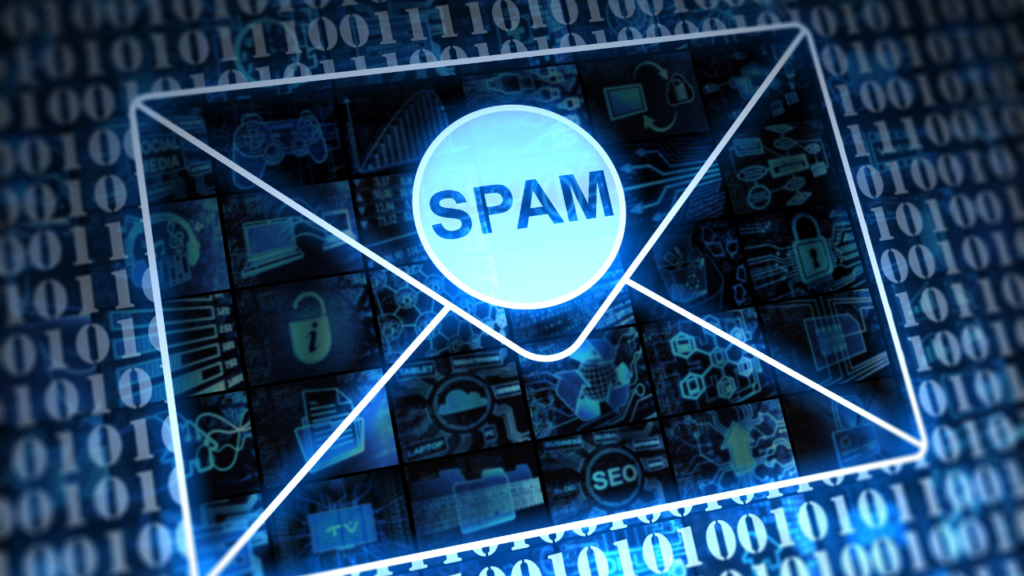Automation in email marketing can significantly elevate your law firm’s ability to retain clients and foster strong relationships. By implementing automated follow-ups, you ensure that no client feels neglected, while also providing them with timely updates and valuable information. This strategy not only enhances client satisfaction but also increases your chances of repeat business and referrals. Discover how to effectively set up these automated systems to maintain consistent communication and keep your clients engaged with your firm.
Key Takeaways:
- Automation streamlines your follow-up process, ensuring timely communication with clients and enhancing client retention.
- Personalization in email marketing increases client engagement, making them feel valued and understood, which can lead to long-term loyalty.
- Segmentation of your client list allows for targeted messaging that resonates with specific client needs, improving the effectiveness of your marketing efforts.

Understanding Email Marketing
The world of digital communication is constantly evolving, and email marketing remains a powerful tool for law firms looking to enhance client engagement. To learn more, refer to A Guide to Email Marketing For Lawyers and Law Firms. This chapter will explore the definition, importance, and key metrics that you should consider when implementing an email marketing strategy.
Definition of Email Marketing
One of the most effective forms of digital communication, email marketing involves sending targeted messages to a list of subscribers or clients. This strategy allows you to promote your legal services, share valuable information, and maintain consistent communication with your audience.
Importance of Email Marketing for Law Firms
Below is the undeniable impact of email marketing on client retention and engagement. With direct access to your audience, you can build strong relationships, keep clients informed about legal updates, and gently remind them of your services when needed.
Importance lies in how email marketing enables you to stay connected with both existing and potential clients. By delivering informative and valuable content through regular newsletters or updates, you create a sense of trust and authority in your practice. This continuous communication fosters client loyalty, increasing the chances of referrals and repeat business, which are important for a thriving law firm.
Key Metrics to Track in Email Campaigns
Any successful email marketing effort hinges on your ability to measure its effectiveness. Tracking metrics such as open rates, click-through rates, and conversion rates helps you gauge how well your emails resonate with subscribers.
To maximize the impact of your campaigns, focus on analyzing these key metrics regularly. Open rates indicate how many of your recipients are engaged enough to view your emails. Click-through rates reflect the effectiveness of your content in prompting action, while conversion rates demonstrate how many recipients take the desired steps, such as scheduling consultations or requesting more information. By closely monitoring these figures, you can adjust your strategies to better meet the needs of your audience, ultimately enhancing your law firm’s email marketing success.
The Benefits of Automation in Email Follow-Ups
Now, implementing automation in your email follow-ups can transform your law firm’s client retention rates. By utilizing tailored systems, you can streamline your communication and build stronger relationships with clients, ensuring that no one falls through the cracks.
Time Efficiency: Streamlining Your Efforts
Along with saving substantial time, automation allows you to focus on more pressing legal matters while keeping your clients informed. By setting up automated follow-ups, you can eliminate repetitive tasks and enhance your overall productivity.
Consistency: Maintaining Engagement with Clients
Efficiency in your follow-up strategy ensures that your clients are regularly engaged, which can significantly improve their perception of your practice. With automated emails, you can send timely reminders and updates without manual input, providing your clients with the attention they deserve.
But maintaining this consistency not only creates a sense of reliability but also builds trust. Regular communication updates keep your clients informed about their cases and your firm’s services, encouraging them to stay connected and engaged, ultimately fostering long-term relationships.
Personalization at Scale: Tailoring Messages
Messages sent through automated systems can be personalized to reflect each client’s unique needs and preferences. This approach makes your correspondence feel intentional and relevant, enhancing the interpersonal connection even when you’re not physically present.
Your ability to personalize communications at scale means you can address specific client concerns and preferences efficiently. Automated systems allow you to segment your audience, tailoring the content of your emails to various demographics, ensuring that clients receive information that resonates with them and making them feel valued.
Setting Up an Effective Email Marketing Strategy
Despite the growing competition in legal services, establishing an effective email marketing strategy can significantly enhance your firm’s client retention. Implementing automation in your follow-up communications allows you to stay top-of-mind with clients and leads, making it easier to maintain relationships and boost retention. For those looking for insights, check out 5 Ways to Use Marketing Automation for Law Firms to understand how to leverage technology to your advantage.
Identifying Your Audience: Target Market Segmentation
Across your email marketing strategy, pinpointing your target audience is necessary. Segmenting your market allows you to tailor your communications to meet the unique needs of different client segments, enhancing the relevance of your messages. By understanding the demographics, interests, and pain points of your clients, you can develop a more focused approach that resonates with them effectively.
Building a Quality Email List: Strategies and Best Practices
Before you start sending emails, building a quality email list is vital to your strategy’s success. You should capture emails through various channels like your website, social media, and in-person consultations. Ensure you have opt-in permissions and keep your list clean by regularly removing unresponsive contacts. This will ultimately enhance your engagement rates and maintain a positive sender reputation.
Market your email list by offering valuable content that encourages sign-ups. Use lead magnets such as free consultations, downloadable resources, or newsletters filled with legal insights. Positioning your calls to action prominently on your website and utilizing social media to attract potential clients can also be effective strategies. Be mindful of, a high-quality email list will yield better results than a large but unqualified one, ensuring your messages reach the right audience.
Crafting Compelling Email Content: Writing Tips for Attorneys
Behind every successful email campaign lies compelling content. As an attorney, you must convey your expertise while making the information accessible. Focus on creating engaging subject lines, personalizing your emails, and including clear calls to action. Utilize concise language and help the reader understand the benefits of your services. This will keep your audience engaged and more likely to respond.
Your email content should reflect your law firm’s brand while delivering value to your clients. Aim to integrate the following elements in your emails:
- Relevance: Ensure the content addresses clients’ current legal needs.
- Clarity: Use clear and straightforward language.
- Value: Highlight the benefits clients will gain by engaging with your firm.
This approach will help you build trust and authority with your audience, fostering long-term relationships.
Automation Tools and Platforms
To elevate your email marketing strategy, leveraging automation tools and platforms is imperative. Automation not only streamlines your communication but also enhances client retention by ensuring timely follow-ups without manual effort.
Overview of Popular Email Marketing Platforms
By using established email marketing platforms like Mailchimp, Constant Contact, or HubSpot, you can effectively manage your campaigns. These tools offer intuitive interfaces and powerful analytics, enabling you to create targeted communication that resonates with your audience.
Features to Look for in Automation Software
Automation software should enhance your workflow. Look for features such as trigger-based emails, which send messages based on specific user actions, as well as list segmentation to tailor your outreach. Additionally, consider platforms that provide analytics and reporting to assess engagement metrics effectively.
To maximize the effectiveness of your email marketing, ensure the software allows for customizable templates and personalization. You should also consider integrations with other tools, such as social media platforms, to create a cohesive marketing strategy. Lastly, prioritize tools that offer easy A/B testing to refine your campaigns based on subscriber responses.
Integrating Email Automation with Your Law Firm’s CRM
Around your law firm’s CRM, integrating email automation can significantly enhance client relationships. This integration allows you to track client interactions and tailor your communications accordingly, making your follow-ups more relevant.
Marketing automation combined with your CRM enables you to deliver targeted messages based on each client’s unique journey. By syncing client data, you can schedule follow-up emails related to case updates or consultations seamlessly. This not only saves you time but also makes your communication more effective and enhances client satisfaction, leading to stronger retention rates.

Best Practices for Follow-Up Emails
Keep your follow-up emails strategic to improve client retention rates. Automated follow-ups should ideally be timed based on the completion of significant milestones, such as the conclusion of a case or a client consultation. Send your emails promptly but avoid overwhelming your clients with excessive communication. A well-timed follow-up can reignite interest without being intrusive, ensuring that you remain top-of-mind for future legal needs.
Timing and Frequency of Follow-Ups
Along with timing, frequency plays an necessary role in your follow-up strategy. You might consider sending follow-ups after a few days post-consultation, followed by reminders at regular intervals. This approach allows you to stay connected without overwhelming your clients, ensuring they have the opportunity to reach out if they have questions.
Subject Lines That Drive Opens
Against stiff competition in your clients’ inboxes, crafting a compelling subject line is key to getting your emails opened. Aim for clarity and relevance that resonates with the recipient. Phrases like “Next Steps for Your Case” or “We Appreciate Your Business” can create a direct connection, prompting clients to engage.
Understanding the psychology behind email subject lines will help you improve open rates significantly. Use personalization when possible—include the client’s name or a reference to their case. Incorporate urgency with phrases like “Limited Time Offer” or suggest the value they will gain by opening your email, such as “Important Updates Regarding Your Case.” These tactics make your emails more engaging and encourage higher open rates.
Crafting Clear Calls-to-Action
Drive your email engagement by including clear calls-to-action (CTAs). When clients know what steps to take next, they are more likely to respond. Phrases like “Schedule a Consultation” or “Contact Us for Updates” can guide their actions effectively.
FollowUps should emphasize the benefits of taking action through CTAs. Use concise language that conveys urgency or importance, helping recipients understand why they shouldn’t wait. Clear CTAs not only foster client engagement but also ensure that your emails are not merely read and forgotten. As you implement these practices, you’ll create a strong framework for nurturing client relationships effectively.
Measuring Success and Optimizing Campaigns
Many law firms are realizing the importance of measuring the effectiveness of their email marketing campaigns. Tracking engagement metrics allows you to assess how well your follow-up emails are resonating with your clients, helping to inform better decision-making in your future campaigns.
Analyzing Engagement Metrics
Metrics like open rates, click-through rates, and response rates provide valuable insights into your audience’s behavior. By closely monitoring these figures, you can identify which content engages your clients and what may be falling short, thereby empowering you to refine your approach.
A/B Testing Your Emails for Improvement
Across your email campaigns, employing A/B testing can significantly enhance your engagement. By testing different subject lines, content layouts, and call-to-action buttons, you can determine which variations yield the best results and apply these insights to future communications.
Plus, conducting A/B tests provides you with actionable data that helps to pinpoint your audience’s preferences. For instance, if one subject line results in higher open rates compared to another, you can confidently use it in future campaigns, thus optimizing your emails based on real feedback.
Collecting Feedback and Adjusting Strategies
Your clients’ feedback is invaluable for improving your email marketing efforts. By actively soliciting opinions on your communications, you can uncover specific areas for improvement and better align your messaging with their expectations.
This feedback loop enables you to make informed adjustments to your strategies. Incorporating client suggestions ensures that your content not only meets their needs but also reinforces your commitment to excellent service, ultimately enhancing client retention and loyalty.
Potential Challenges and How to Overcome Them
After implementing an email marketing strategy for your law firm, you’ll likely encounter potential challenges that may hinder your effectiveness. However, understanding these hurdles can help you develop strategies to overcome them, leading to a more successful campaign.
Managing Unsubscribes and Spam Complaints
To maintain a healthy email list, it’s necessary to monitor unsubscribes and spam complaints. Providing clear opt-out options and regularly cleaning your list will help minimize these issues. Engaging content and personalized messages can also foster loyalty, reducing the likelihood of unsubscribes and ensuring your emails reach the right audience.
Ensuring Compliance with Legal Regulations
Behind every successful email marketing campaign lies the necessity to navigate legal regulations. Laws like the CAN-SPAM Act and GDPR impose strict guidelines about obtaining consent, protecting personal data, and providing clear information on how to unsubscribe.
In addition to understanding these regulations, your law firm should establish protocols for collecting consent before sending marketing emails. Consider including a clear privacy policy and a detailed explanation on how you handle recipients’ personal information. Staying informed about evolving laws will further safeguard your reputation and avoid potential legal issues.
Overcoming Technical Hurdles
Complaints about technical difficulties can undermine your email marketing efforts. Ensure you invest in a reliable email service provider that offers user-friendly tools for segmenting your audience, automating follow-ups, and tracking engagement metrics to make your campaigns efficient.
Technical issues can arise from outdated software or lack of familiarity with email platforms. To prevent this, prioritize investing time in training your staff on best practices and functionalities. Additionally, regularly update your software to prevent errors that could impact your delivery rates and overall campaign effectiveness.

To wrap up
From above, it’s clear that implementing automated follow-ups through email marketing can significantly enhance your law firm’s client retention efforts. By tailoring your communications to align with your clients’ needs and preferences, you can maintain engagement and foster long-term relationships. Embracing automation not only streamlines your processes but also allows you to focus on delivering exceptional legal services. Leverage these strategies to maximize your firm’s potential and ensure your clients feel valued at every stage of their journey.
Q: What is email marketing and why is it important for law firms?
A: Email marketing is a direct communication strategy used by law firms to engage with clients and prospects through emails. It is important for law firms as it allows them to maintain ongoing communication, nurture relationships, and highlight their services. Through effective email campaigns, firms can provide valuable insights, updates on legal matters, and personalized content, reinforcing client loyalty and ensuring the firm remains top-of-mind for referrals and future legal needs.
Q: How can automating follow-ups improve client retention for law firms?
A: Automating follow-ups streamlines the process of reaching out to clients after an initial contact or consultation, ensuring no potential lead is overlooked. By setting automated reminders and creating tailored email sequences, law firms can efficiently engage with clients, provide them with valuable resources, and remind them of services they may need in the future. This consistency in communication strengthens the client relationship and significantly boosts retention rates by ensuring that clients feel valued and informed throughout their legal journey.
Q: What are some best practices for implementing email marketing automation in a law firm?
A: Some best practices for implementing email marketing automation in a law firm include: 1) Segmenting your email list to tailor messages for different client groups or interests, ensuring you send relevant content; 2) Crafting personalized email templates that address the recipient by name and reference their specific legal needs or past interactions; 3) Analyzing performance metrics such as open rates, click-through rates, and conversion rates to continuously optimize email campaigns; and 4) Regularly updating your email content to keep it fresh, informative, and aligned with current legal trends or changes that may impact clients. Utilizing these strategies can help maximize the effectiveness of your email marketing efforts.








